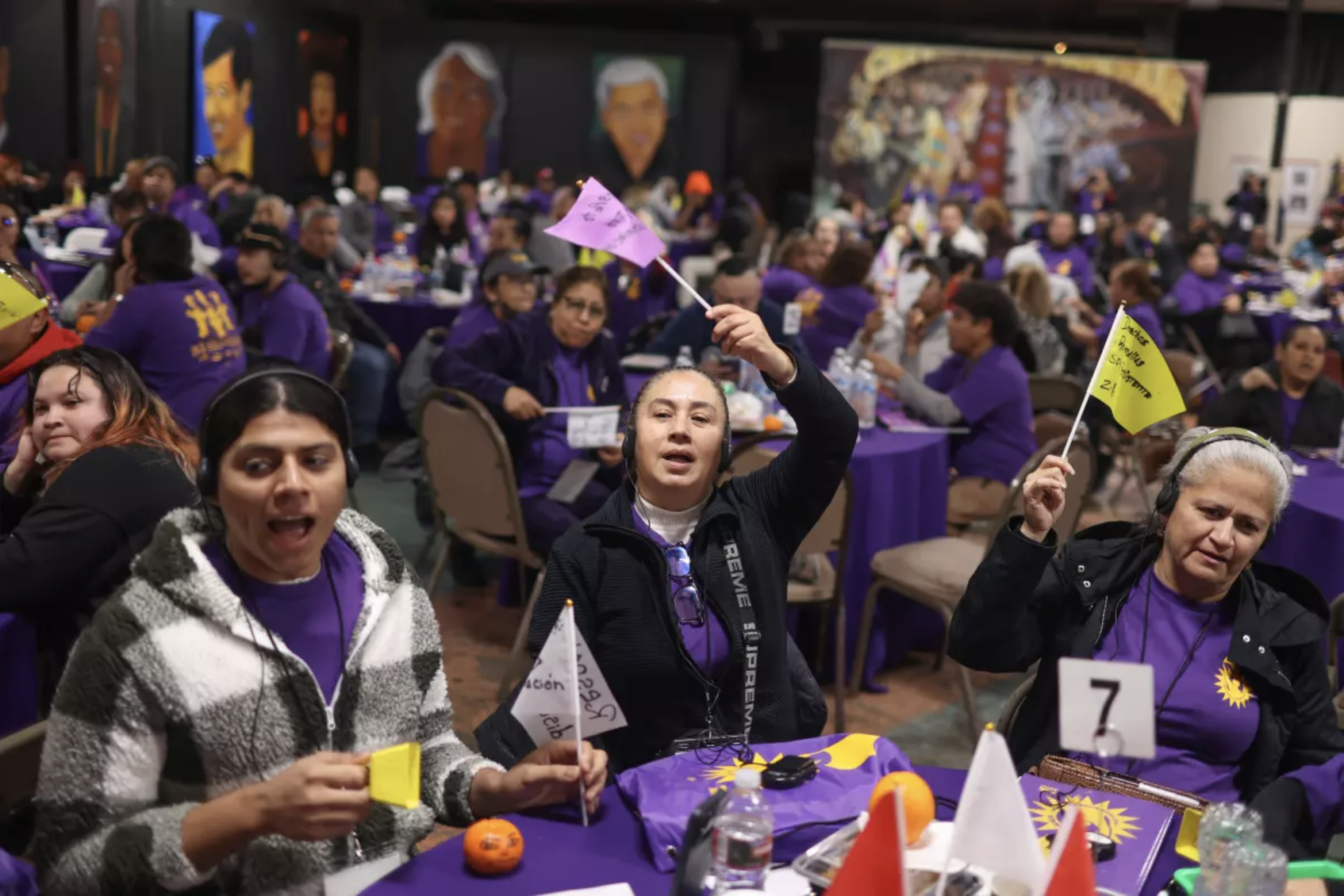
Gilbert Placeres is a student at Harvard Law School.
In today’s News and Commentary, Los Angeles fast food workers launch the California Fast Food Workers Union, NLRB General Counsel Jennifer Abruzzo speaks of her offices’ plans for 2024, and Florida public sector unions begin to be decertified due to new anti-union state legislation.
On Friday, an estimated 350 Los Angeles fast food workers across different companies gathered to launch the California Fast Food Workers Union. The union is, quite uniquely, an industry-wide union where workers can remain members even if they change job locations or companies. It will not seek an election certified by the NLRB, which would require store by store organizing as most fast-food locations are owned by separate franchises. The new union is part of the Service Employees International Union (SEIU) and represents an evolution in the Fight for $15 to a more formal structure that includes dues paying membership. “Led by Black and Latino cooks and cashiers, the California Fast Food Workers Union is setting a shining example of what is possible,” said SEIU International President Mary Kay Henry while announcing the union.
Together with California’s FAST Act passed in 2022, which establishes a fast-food council made up of workers and corporate representatives that will set wages, benefits, and other working conditions, the new union helps approximate sectoral bargaining in the California fast-food industry. The union plans to push local governments for additional protections in areas outside the council’s purview through Fast Food Fair Work ordinances. Initial priorities include annual wage increases, just cause protections, and predictable and sustainable scheduling.
In an interview this week, NLRB General Counsel Jennifer Abruzzo spoke of plans to push the Board to review several important rulings this year. Her goals include banning mandatory captive audience meetings, banning noncompete agreements that restrain worker mobility, and overturning Ex-Cell-O to allow for effective damages for employers’ refusal to bargain in good faith. (“You need to hit employers in their pockets” to deter them from bargaining in bad faith, Abruzzo explained.) She also criticized Elon Musk, Starbucks, and Amazon for disregarding labor law in their aggressive anti-union campaigns and predicted we will continue to see labor momentum and “solidarity building” in 2024.
Lastly, in Florida, over 30 public sector unions have been decertified as anti-union state legislation signed by Governor Ron DeSantis last year begins to take effect. Unions decertified include those representing public school teachers and non-faculty employees at many large public universities. The new law requires public sector unions to have 60% of the workers they represent be dues paying members and also prohibits union dues from being directly deducted from union members’ paychecks, which DeSantis has described as “paycheck protection.” The moniker is borrowed from model legislation spread across the country by the American Legislative Exchange Council (ALEC). Unions representing police, firefighters, and correctional officers are carved out of the new regulations. Public sector unions, including the state’s largest teachers union, scrambled to reach the 60% membership requirement after the law was passed.






Daily News & Commentary
Start your day with our roundup of the latest labor developments. See all
March 2
Block lays off over 4,000 workers; H-1B fee data is revealed.
March 1
The NLRB officially rescinds the Biden-era standard for determining joint-employer status; the DOL proposes a rule that would rescind the Biden-era standard for determining independent contractor status; and Walmart pays $100 million for deceiving delivery drivers regarding wages and tips.
February 27
The Ninth Circuit allows Trump to dismantle certain government unions based on national security concerns; and the DOL set to focus enforcement on firms with “outsized market power.”
February 26
Workplace AI regulations proposed in Michigan; en banc D.C. Circuit hears oral argument in CFPB case; white police officers sue Philadelphia over DEI policy.
February 25
OSHA workplace inspections significantly drop in 2025; the Court denies a petition for certiorari to review a Minnesota law banning mandatory anti-union meetings at work; and the Court declines two petitions to determine whether Air Force service members should receive backpay as a result of religious challenges to the now-revoked COVID-19 vaccine mandate.
February 24
In today’s news and commentary, the NLRB uses the Obama-era Browning-Ferris standard, a fired National Park ranger sues the Department of Interior and the National Park Service, the NLRB closes out Amazon’s labor dispute on Staten Island, and OIRA signals changes to the Biden-era independent contractor rule. The NLRB ruled that Browning-Ferris Industries jointly employed […]